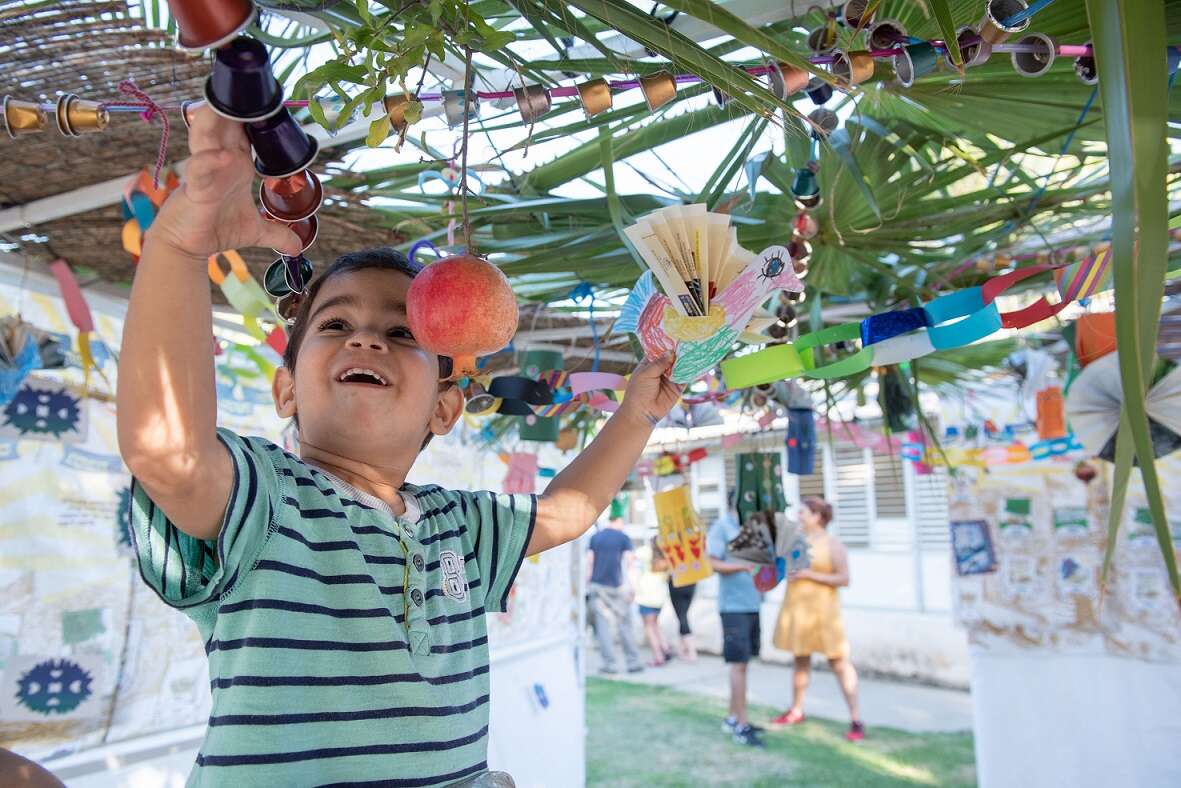"Our lives are like a violinist on the roof," says Tuvia, the milkman in the mythological film. Jewish existence is an endless attempt to find the balance between realism and messianism, between practice and between a unique national identity and a universal identity. The danger of falling on either side is clear, and the ability to grasp the complexity of conflicting values is nothing short of an art.
Sukkot is probably the holiday that expresses this idea more than anything else: more than Passover, in which the people of Israel alone were redeemed from Egypt while their enemies drowned in the sea; More than Shavuot, the holiday commemorating the unique heritage of the Jewish people; Certainly more than Chanukah, which expresses the negation of foreign culture; Sukkot is the holiday on which 70 special sacrifices were offered in the Temple, each of which was meant to symbolize the blessing we ask G-d to give to the nations of the world. At the end of the holiday, we begin to pray for rain – perhaps the strongest expression of universal abundance.
This encounter, between offering sacrifices in the Jewish Temple and praying for the nations and yearning for abundance to descend on all of humanity, symbolizes something very personal for me. My parents immigrated to Israel from London, their parents fled to London from burning Germany. My two grandfathers, who were humanists in every sense of the word, wrestled until their last day with an agonizing question: Should we strengthen our particular identity in the wake of the Holocaust or rather our universal human identity? Does marriage between Jews and non-Jews signal the destruction of the Jewish people or the human ability to overcome walls of suspicion and hatred? To what extent should we shut ourselves off – socially, culturally and religiously – and to what extent should we open up?
Many answers have been given to these questions, both on the halachic-legal and intellectual levels, but the questions are stronger than the answers. Today, when the discourse on mutual cultural influence is vibrant and bubbling, finding the right balance is a renewed challenge.
The difficulty in reconciling between "Jewish" and "democratic," between the fear of a "halakhic state" and the fear of losing the Jewish identity of the state, is merely an incarnation of the great challenge that has accompanied the Jewish people for generations upon generations. This does not make the current discussion any less important, on the contrary – it allows it to be placed on a continuum of Jewish thought that has existed for centuries. Maybe the secret is that you don't really have to decide.
The difficulty in reconciling between "Jewish" and "democratic," between the fear of a "halakhic state" and the fear of losing the Jewish identity of the state, is merely an incarnation of the great challenge that has accompanied the Jewish people for generations and generations
One of the greatest thinkers of religious Zionism, Rabbi Avraham Yitzchak Hacohen Kook, wrote as early as 1920 that the intense public controversy lies in the fact that there are people who have a natural inclination towards particular nationalism, there are people who have a natural attraction to universalism, and there are people whose obviousness is actually religious. The solution is not a constant campaign of persuasion or an all-out war, but a willingness to accept that it is possible to look at the world from a different perspective, different from ours, with a different scale of values than ours. The stability of the violinist on the roof is made possible not because everyone directs their set of beliefs and values to the exact same temperature, but because overall no value has been neglected. There are those who worry about the realization of universal values, there are those who worry about the realization of national values, and there are those who worry about the realization of traditional and religious values. The tension between them is natural (and so is the struggle for resources), but if there is an idea that Sukkot instills in us, it is the idea that there is room for everyone.
Sukkot, like any special date on the Jewish calendar, offers a reminder that it is possible to have a unique religious ritual but remain with an open heart and sincere prayer for the rest of the world; that Jewish holiness involves the demand to bring blessing to humanity; That just as one must know how to move from the national to the universal, one must also know how to return to the special day that awaits at the end of the holiday - Simchat Torah Day; And a reminder that finding the right balance between all these extremes is a never-ending task, and a dispute that cannot be resolved – or necessary – to be resolved. Happy holiday!
Wrong? We'll fix it! If you find a mistake in the article, please share with us

